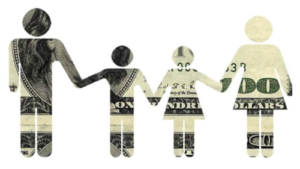The Numbers Don’t Lie-The Wealthy Are Paying More Taxes

More, more, more! So many people demand that the wealthy pay more taxes. ‘They must pay their fair share,” goes the battle cry. The question is what really constitutes a fair share? Truth be told, many of the nations wealthy pay a smaller percentage of taxes than most. However, that doesn’t mean they aren’t paying their fair share. Want proof? Then look no further than the number the IRS reported: in 2014, those who made more than $100,000 paid a combined 79.5 percent of all federal income taxes.
A closer look at the numbers from the IRS shows that more than 148 million Americans filed a tax return in 2014. Of those, 23.7 million showed an AGI of a $100,000 or more. That equals 16 percent of all tax returns. Almost all of those returns reported tax due for a combined total of $1.079 trillion in taxes, which amounts to 79.5 percent of all federal income taxes paid in 2014.
Yes, the top 1 percent, or 16 percent in this case, make a lot more money than most people, but even though they have found many ways to lower their effective tax rate, they still pay nearly 80 percent of all the federal income taxes collected by the IRS. Is that a fair share? That’s a question for each person to answer.
http://www.forbes.com/sites/kellyphillipserb/2016/05/13/americans-who-make-more-than-100000-pay-80-of-federal-income-taxes/#50015fe02f7a/
Employee Ownership Update
Employee Ownership The following article appeared in the New York Times on May 21, 2006 and is one of the best articles about employee ownership that I have seen. It illustrates a few great examples of how employee ownership has helped companies achieve extraordinary success. These Workers Act Like Owners (Because They Are) By William…
Family Limited
This FLP Alert is directed at clients and their advisors who have already established Family Limited Partnership irs (“FLP’s”) and those clients who are considering a partnership as part of their estate plan. With all the attacks the IRS has made on FLP’s over the past few years, culminating at the Strangi III decision in…
The True Value of Your Company May Be Different From What You Think
The True Value of Your Company May Be Different From What You Think Approaches to Value Intangible Assets Posted: 3/31/11 I’ve received a lot of inquires asking how to value a company that has yet to generate any revenue, has not reached profitability, and yet, it has a substantial history of expenses. Most are start-up…
Does Your Business Need a Buy-Sell Agreement?
Does Your Business Need a Buy-Sell Agreement? What Is Buy-Sell Agreement? Buy-Sell Agreement, also known as a buyout agreement, give the company or other stockholders the option or obligation to purchase the interests of other owners under some specified circumstances called trigger events such as death, departure, or retirement, etc. There are two basic types…




